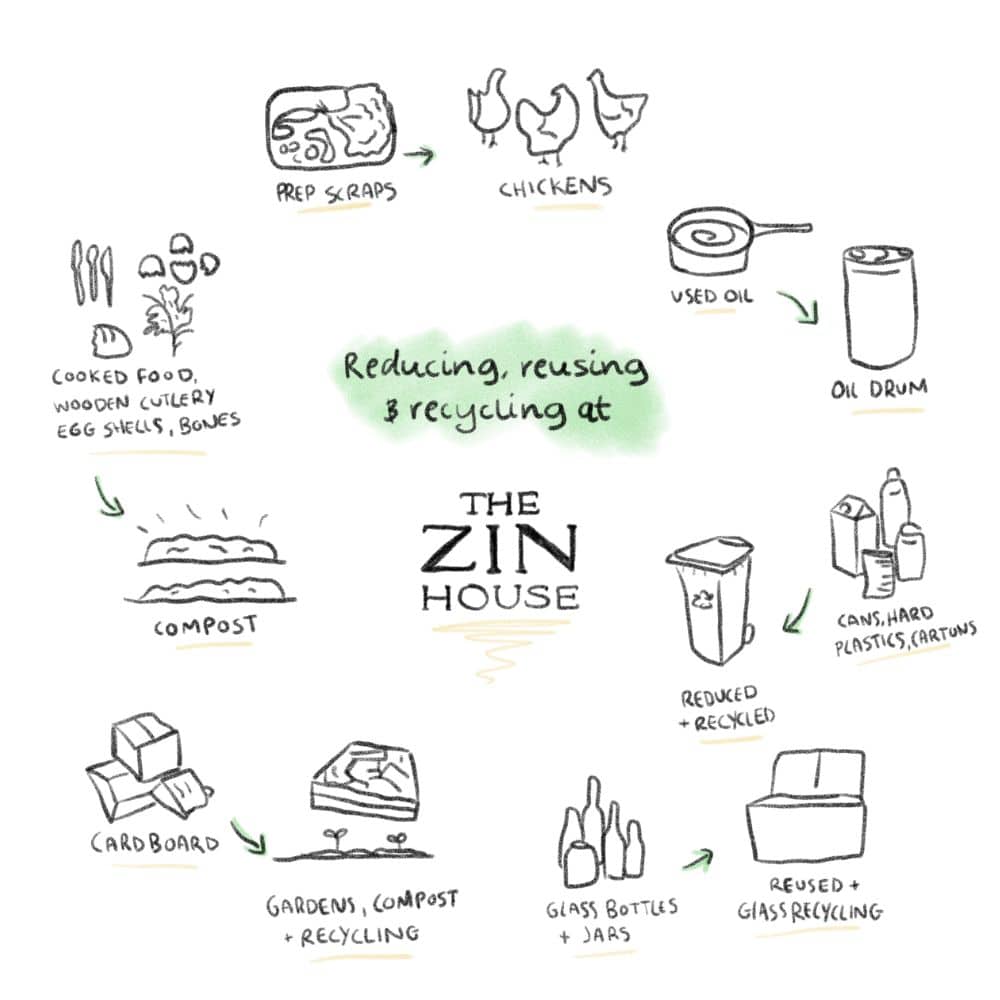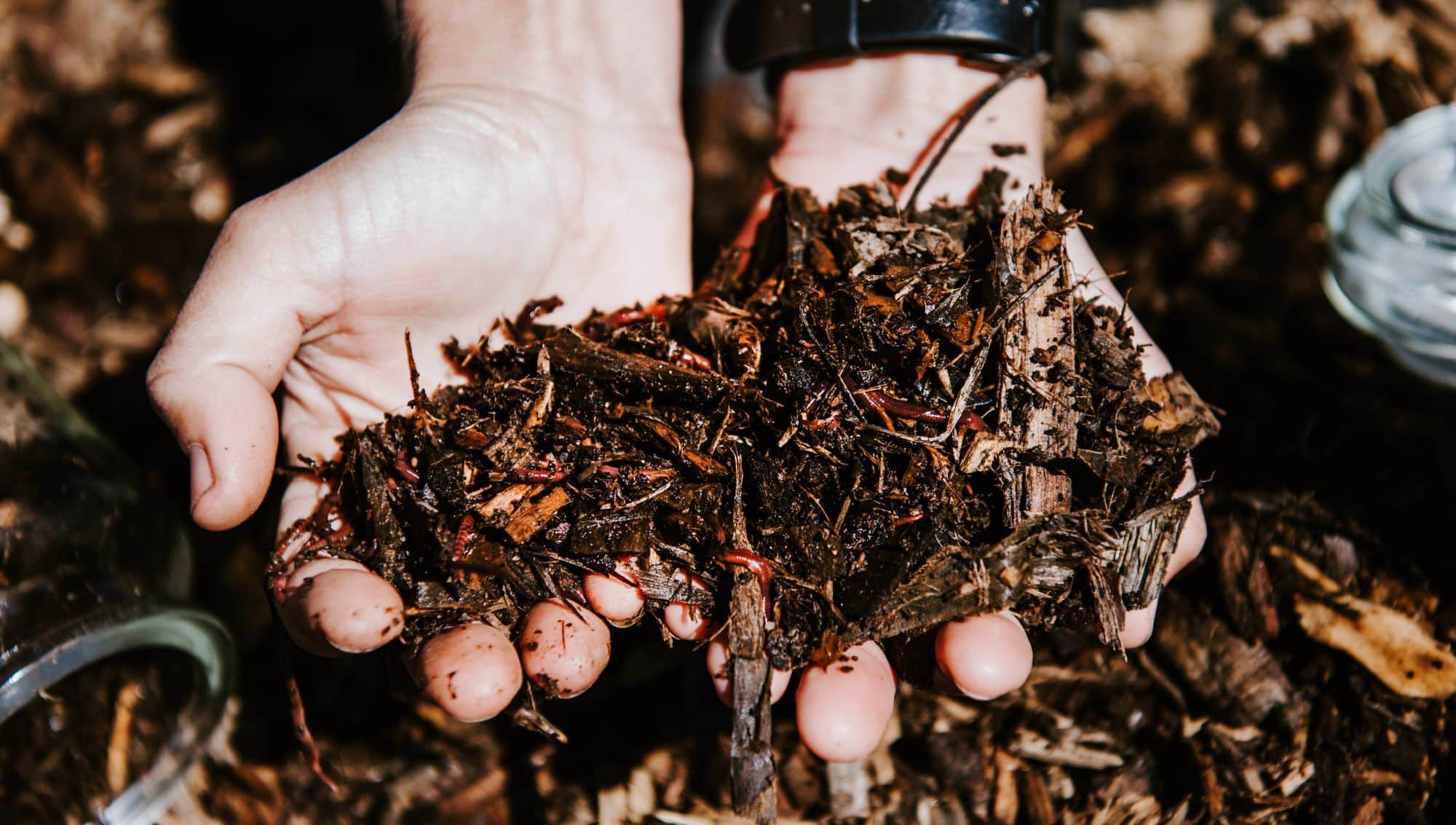A look at Zin House’s No Food Waste System
As we approach Stop Food Waste Day on April 24th, we reflect on our food waste systems within The Zin House and Kim’s goal to be a no-waste restaurant. Food waste is a significant issue within the hospitality and agriculture industries worldwide. Since the inception of Zin, the menu has been centred around Kim’s nose-to-tail ethos as a way to reduce our waste footprint. This entails utilising every piece of the animal, vegetable, or fruit in creative ways throughout the menu. But food waste goes beyond just what were able to use in the kitchen. So we’ve created a cyclical system to help us stop waste at Zin House to help us achieve our goal.
Composting
The collected organic waste (like cooked food, wooden cutlery, eggshells, and bones) undergoes a transformative journey within Tinja’s compost heaps. Here, under the watchful eye of our dedicated staff, the waste decomposes into nutrient-rich compost. This ‘black gold’ serves as a natural fertiliser, nurturing the very soil that yields the restaurant’s bountiful gardens and vineyards.
Chooks & Worm Farms
Complementing our traditional composting methods are the Zin House’s worm farms and our trusty Chooks. Kitchen scraps get split between the two. Our community of red wriggler worms break down food scraps into organic matter. These creatures play a pivotal role in accelerating the decomposition process, converting food scraps into nutrient-dense worm castings. The resulting vermicompost enriches the soil, promoting plant growth and vitality in our market gardens. Our birds devour kitchen prep scraps, turning them into nutrient-packed eggs and providing a sustainable source of protein for the restaurant.
Reusing Material Across the Property
Zin House’s no-waste efforts don’t end with composting. Every aspect of the restaurant’s operations is challenged to minimise waste. Cardboard boxes that carry deliveries get broken down and used as garden bedding in our market gardens, attracting worms to help build healthy soil. Glass bottles and cans are washed and reused, and those that can’t be reused are separated accordingly so that we can ensure they reach the right recycling centres.

Learn how to reduce your waste at home
If you’re interested in learning more about Stop Food Waste Day and want to find easy tips you can apply at home, visit StopFoodWasteDay.com

